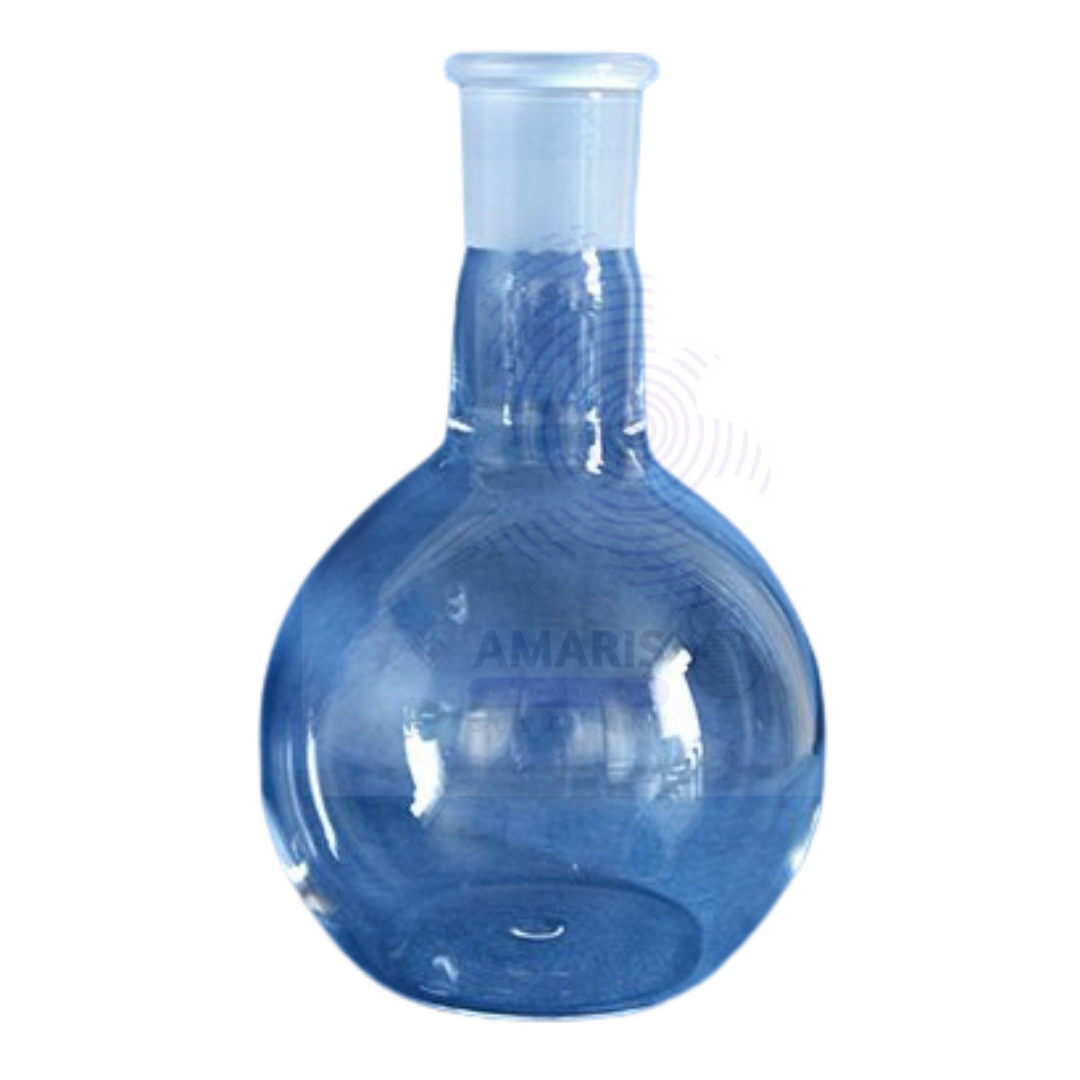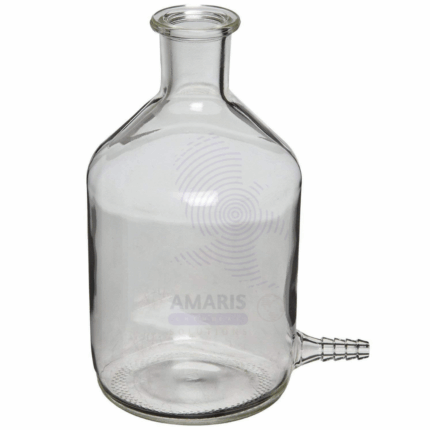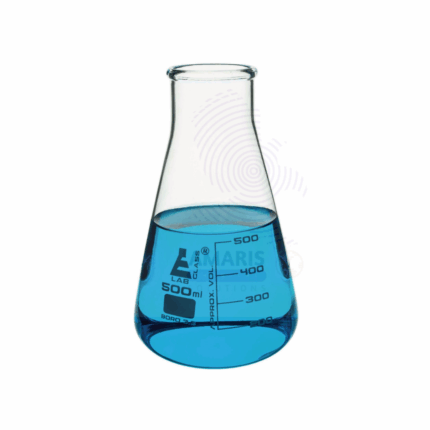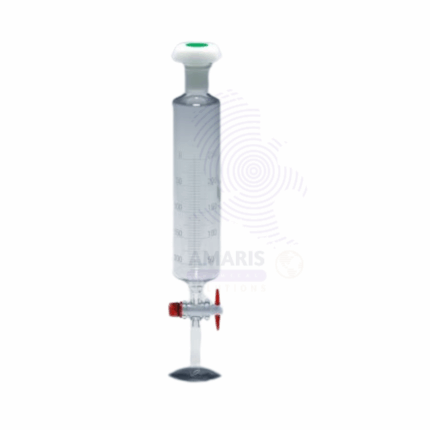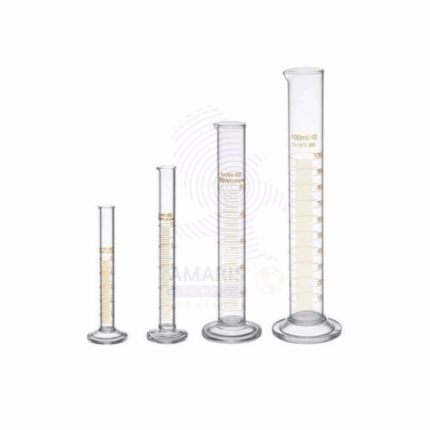“U tube lab glass with side arms” has been added to your cart. View cart
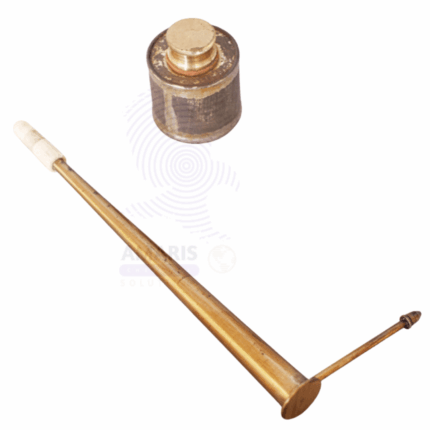
Blow Pipes
$ 7.12 Original price was: $ 7.12.$ 7.09Current price is: $ 7.09.

Borosilicate Glass Tubings
$ 10.02 Original price was: $ 10.02.$ 9.80Current price is: $ 9.80.
Boiling Flask Flat Bottom
$ 15.04 Original price was: $ 15.04.$ 14.98Current price is: $ 14.98.
Whatsapp Order
The Boiling Flask Flat Bottom is a laboratory glassware item designed for heating, boiling, and mixing chemical solutions. It features a flat base that allows it to stand independently on lab benches or heating surfaces. Made from high-quality borosilicate glass, it provides excellent thermal resistance and chemical durability. The flask’s wide mouth facilitates easy pouring, filling, and cleaning. It is commonly used in laboratories for distillation, reflux, and other heating applications requiring uniform heat distribution.
Description
Table of Contents
Toggle
Boiling Flask Flat Bottom
Primary Uses
- Laboratory Applications
- Used for boiling liquids evenly during chemical reactions and solution preparations.
- Suitable for heating, mixing, and holding chemical substances in laboratory experiments.
- Employed in distillation setups as a receiving or boiling vessel.
- Utilized in reflux apparatus for controlled heating and condensation.
- Suitable for use with heating mantles, hot plates, or water baths.
Secondary Uses
- Industrial Applications
- Used in industrial labs for quality control and chemical processing trials.
- Applied in pilot plants for small-scale chemical synthesis requiring heat application.
- Utilized for preparation of samples and reagents in production monitoring.
KEY PRODUCT FEATURES
1.Basic Identification Attributes
- Material: Borosilicate Glass
- Shape: Flat Bottom
- Volume: Various sizes available (commonly 50ml to 2000ml)
- Neck: Narrow mouth for compatibility with stoppers and adapters
2.Physical & Chemical Properties
- Thermal Resistance: High (up to approx. 400°C)
- Chemical Resistance: Resistant to acids, bases, and solvents
- Transparency: Clear glass for visual observation
- Durability: Resistant to thermal shock and mechanical stress with proper handling
3.Safety & Hazard Attributes
- Breakage Risk: Glass can break under impact or sudden temperature changes
- Toxicity: Non-toxic material but broken glass can cause injury
- Handling: Use appropriate protective equipment to prevent cuts
4.Storage & Handling Attributes
- Storage Conditions: Store in padded, secure lab cabinets to prevent damage
- Handling Precautions: Handle with care to avoid dropping or impact
5.Regulatory & Compliance Attributes
- Manufactured according to ISO standards for laboratory glassware
- Quality control for chemical resistance and thermal durability
6.Environmental & Health Impact
- Material is recyclable glass
- Low environmental impact with proper disposal
SAFETY HANDLING PRECAUTIONS
Safety Handling Precautions
- Wear protective gloves and eyewear when handling to avoid injury from breakage
- Avoid sudden temperature changes to prevent thermal shock
First Aid Measures
- In case of cuts from broken glass, clean wound and seek medical attention if severe
- No chemical hazard from the flask material itself
Firefighting Measures
- Fire Hazard: Non-flammable glass material
- Extinguishing Media: Not applicable
- Special Precautions: None
Related products
Aspirator Bottle Glass
Aspirator Bottle Glass is a durable, high-quality glass container designed specifically for use in laboratory suction and aspiration systems. These bottles are engineered to safely collect and contain liquids and aerosols during filtration, vacuum, or aspiration procedures. Made from chemically resistant glass, Aspirator Bottles offer excellent clarity and durability while withstanding the rigors of laboratory use. They typically feature secure screw caps or stopper closures that ensure leak-proof performance and easy handling. Widely used in medical, research, and industrial laboratories, Aspirator Bottle Glass is essential for safe fluid management in various applications.
Borosilicate Glass Tubings
Borosilicate Glass Tubings are high-quality glass tubes made from borosilicate material, known for excellent thermal resistance and chemical durability. These tubes are used extensively in laboratories and industries for transporting gases and liquids, conducting experiments, and fabricating custom glass apparatus. Their high resistance to thermal shock and chemical corrosion makes them ideal for harsh lab environments and industrial processes. Available in various diameters and lengths, these tubings can be cut or bent to suit specific experimental setups.
conical flask
Conical flasks, also known as Erlenmeyer flasks, are widely used laboratory glassware characterized by a flat bottom, conical body, and a narrow neck. Made typically from borosilicate glass, they are designed to hold, mix, and heat liquids safely. The narrow neck helps reduce evaporation and splashing during experiments. Conical flasks are essential for titrations, culturing microorganisms, and general solution preparation in laboratories and industrial settings.
Dropper
Dropper is a small laboratory tool used to transfer precise volumes of liquids in drops. Typically composed of a glass or plastic tube with a squeezable rubber bulb at one end, the dropper allows controlled dispensing of liquids for experiments, titrations, or sample preparations. Its simple design enables easy handling and measurement of small quantities, making it indispensable in chemical, biological, pharmaceutical, and educational laboratories. Droppers are ideal for adding reagents dropwise, conducting qualitative tests, or transferring liquids without contamination.
Dropping Funnel with Tap
Dropping Funnel with Tap is a precision laboratory glassware apparatus designed to add liquids dropwise or in a controlled flow to a reaction vessel or system. Typically made from chemically resistant borosilicate glass, this funnel features a conical body with a ground glass joint and an integrated stopcock (tap) at the bottom for precise flow regulation. It allows gradual addition of reactants during sensitive chemical processes, minimizing splashing, sudden reactions, or contamination. Widely used in organic synthesis, titrations, and controlled mixing procedures, it ensures safety and accuracy in laboratory operations.
Evaporation Dish
Evaporation Dish is a shallow laboratory container typically made from chemically resistant materials such as porcelain, borosilicate glass, or metal. It is designed to hold liquids for evaporation processes where solvents are removed by heating, leaving behind solid residues or concentrated solutions. The dish provides a wide surface area to facilitate rapid evaporation and is widely used in chemical, pharmaceutical, and educational laboratories. Its durable construction allows it to withstand thermal stress and chemical exposure during repetitive heating and cooling cycles.
Expansion of Liquid Apparatus
Expansion of Liquid Apparatus is a laboratory device designed to measure the volumetric expansion of liquids when subjected to temperature changes. It consists of a graduated glass tube connected to a bulb containing the test liquid. As the liquid heats and expands, the change in volume is observed and recorded through the graduated scale. This apparatus is essential in physical chemistry and materials science for studying thermal expansion coefficients and understanding liquid behavior under varying thermal conditions. It is commonly made from chemically resistant borosilicate glass to withstand thermal stress and chemical exposure.
measuring cylinder glass
The Measuring Cylinder Glass is a fundamental laboratory apparatus specifically engineered for the precise measurement of liquid volumes. Constructed from high-quality, chemically resistant borosilicate glass, it ensures durability, resistance to chemical corrosion, and clarity for optimal visibility of liquid levels. The cylindrical shape provides a stable base and ergonomic design for ease of handling and pouring. Graduated volume markings, typically etched or printed with high contrast, allow accurate reading of liquid quantities down to the milliliter, supporting quantitative experiments and solution preparations. The transparent nature of the glass facilitates observation of the meniscus, which is critical for accuracy in volume measurement. Measuring cylinders vary in size, commonly ranging from small (10 mL) to large capacities (1000 mL or more), meeting diverse laboratory needs. They are widely used across chemical, biological, medical, educational, and industrial laboratories for tasks including volumetric analysis, solution preparation, and quality control. Their ability to withstand thermal fluctuations and autoclaving processes also makes them suitable for sterilized environments. Measuring Cylinder Glass is essential for maintaining precision and reproducibility in experimental and routine laboratory procedures.


 Preservatives(food)
Preservatives(food) Flavor Enhancers
Flavor Enhancers Acidulants
Acidulants Sweeteners
Sweeteners Antioxidants
Antioxidants Colorants(food)
Colorants(food) Nutraceutical Ingredients (food)
Nutraceutical Ingredients (food) Nutrient Supplements
Nutrient Supplements Emulsifiers
Emulsifiers
 Collectors
Collectors Dust Suppressants
Dust Suppressants Explosives and Blasting Agents
Explosives and Blasting Agents Flocculants and Coagulants
Flocculants and Coagulants Frothers
Frothers Leaching Agents
Leaching Agents pH Modifiers
pH Modifiers Precious Metal Extraction Agents
Precious Metal Extraction Agents
 Antioxidants(plastic)
Antioxidants(plastic) Colorants (Pigments, Dyes)
Colorants (Pigments, Dyes) Fillers and Reinforcements
Fillers and Reinforcements Flame Retardants
Flame Retardants Monomers
Monomers Plasticizers
Plasticizers Polymerization Initiators
Polymerization Initiators Stabilizers (UV, Heat)
Stabilizers (UV, Heat)
 Antifoaming Agents
Antifoaming Agents Chelating Agents
Chelating Agents Coagulants and Flocculants
Coagulants and Flocculants Corrosion Inhibitors
Corrosion Inhibitors Disinfectants and Biocides
Disinfectants and Biocides Oxidizing Agents
Oxidizing Agents pH Adjusters
pH Adjusters Scale Inhibitors( water)
Scale Inhibitors( water)
 Antioxidants(cosmetic)
Antioxidants(cosmetic) Emollients
Emollients Fragrances and Essential Oils
Fragrances and Essential Oils Humectants
Humectants Preservatives
Preservatives Surfactants(cosmetic)
Surfactants(cosmetic) Thickeners
Thickeners UV Filters
UV Filters
 Fertilizers
Fertilizers Soil Conditioners
Soil Conditioners Plant Growth Regulators
Plant Growth Regulators Animal Feed Additives
Animal Feed Additives Biostimulants
Biostimulants Pesticides (Herbicides, Insecticides, Fungicides)
Pesticides (Herbicides, Insecticides, Fungicides)
 Active Pharmaceutical Ingredients (APIs)
Active Pharmaceutical Ingredients (APIs) Excipients
Excipients Solvents(pharmaceutical)
Solvents(pharmaceutical) Antibiotics
Antibiotics Antiseptics and Disinfectants
Antiseptics and Disinfectants Vaccine Adjuvants
Vaccine Adjuvants Nutraceutical Ingredients (pharmaceutical)
Nutraceutical Ingredients (pharmaceutical) Analgesics & Antipyretics
Analgesics & Antipyretics
 Analytical Reagents
Analytical Reagents Solvents(lab)
Solvents(lab) Chromatography Chemicals
Chromatography Chemicals Spectroscopy Reagents
Spectroscopy Reagents microbiology-and-cell-culture-reagents
microbiology-and-cell-culture-reagents Molecular Biology Reagents
Molecular Biology Reagents Biochemical Reagents
Biochemical Reagents Inorganic and Organic Standards
Inorganic and Organic Standards Laboratory Safety Chemicals
Laboratory Safety Chemicals Specialty Laboratory Chemicals(Special Laboratory Equipment)
Specialty Laboratory Chemicals(Special Laboratory Equipment)
 Demulsifiers
Demulsifiers Hydraulic Fracturing Fluids
Hydraulic Fracturing Fluids Scale Inhibitors(oil)
Scale Inhibitors(oil) Surfactants(oil)
Surfactants(oil) Drilling Fluids
Drilling Fluids
 Dyes and Pigments
Dyes and Pigments Bleaching Agents
Bleaching Agents Softening Agents
Softening Agents Finishing Agents
Finishing Agents Antistatic Agents
Antistatic Agents
 Admixtures
Admixtures Waterproofing Agents
Waterproofing Agents Sealants and Adhesives
Sealants and Adhesives Curing Compounds
Curing Compounds Concrete Repair Chemicals
Concrete Repair Chemicals Anti-Corrosion Coatings
Anti-Corrosion Coatings
 Surfactants(cleaning)
Surfactants(cleaning) Builders
Builders Enzymes
Enzymes Solvents (Cleaning)
Solvents (Cleaning) Fragrances
Fragrances
 Electronic Chemicals
Electronic Chemicals Catalysts
Catalysts Lubricants
Lubricants Photographic Chemicals
Photographic Chemicals Refrigerants
Refrigerants Automotive chemicals
Automotive chemicals Pyrotechnic Chemicals
Pyrotechnic Chemicals
 Biodegradable Surfactants
Biodegradable Surfactants Bio-based Solvents
Bio-based Solvents Renewable Polymers
Renewable Polymers Carbon Capture Chemicals
Carbon Capture Chemicals Wastewater Treatment Chemicals
Wastewater Treatment Chemicals
 Pigments
Pigments Solvents(paint)
Solvents(paint) Specialty Coatings
Specialty Coatings Binders/Resins
Binders/Resins Additives
Additives Driers
Driers Anti-Corrosion Agents
Anti-Corrosion Agents Functional Coatings
Functional Coatings Application-Specific Coatings
Application-Specific Coatings
 Fresh Herbs
Fresh Herbs Ground Spices
Ground Spices Whole Spices
Whole Spices Spice Blends
Spice Blends Dried Herbs
Dried Herbs
 Leavening Agents
Leavening Agents Dough Conditioners
Dough Conditioners Flour Treatments
Flour Treatments Fat Replacers
Fat Replacers Decoratives
Decoratives Preservatives(baking)
Preservatives(baking)
 Plasticizers & Softeners
Plasticizers & Softeners Reinforcing Agents
Reinforcing Agents Adhesion Promoters
Adhesion Promoters Vulcanizing Agents
Vulcanizing Agents Antidegradants
Antidegradants Blowing Agents
Blowing Agents Fillers & Extenders
Fillers & Extenders Accelerators & Retarders
Accelerators & Retarders